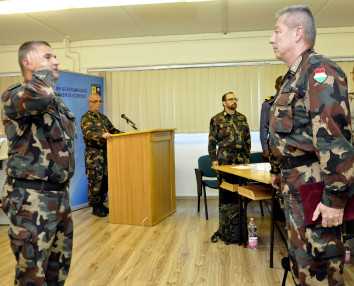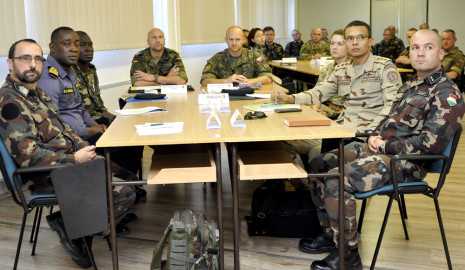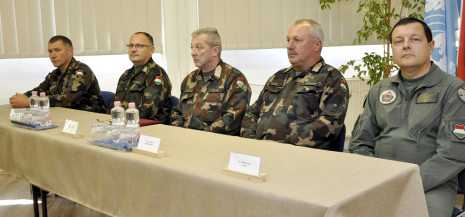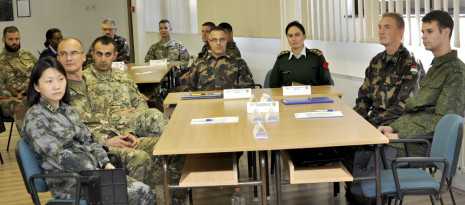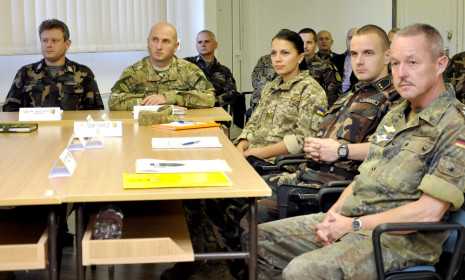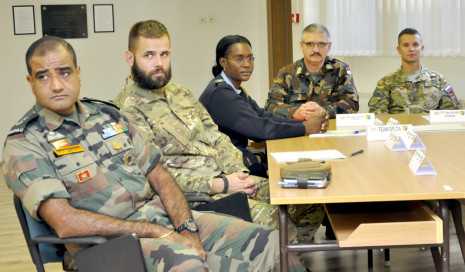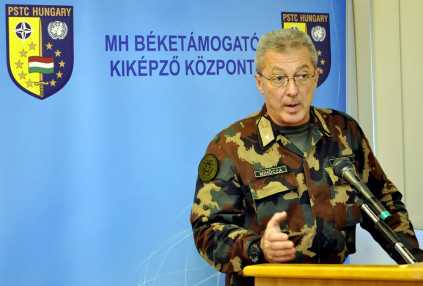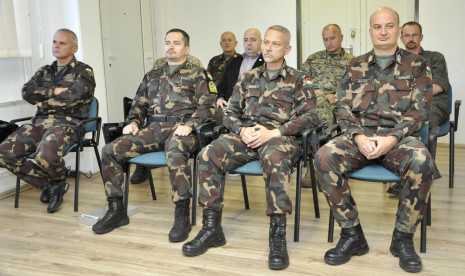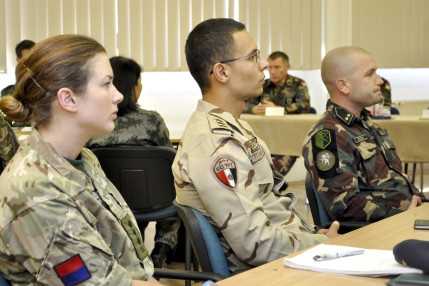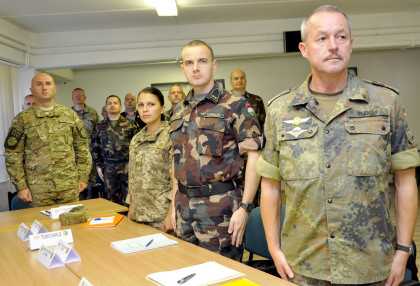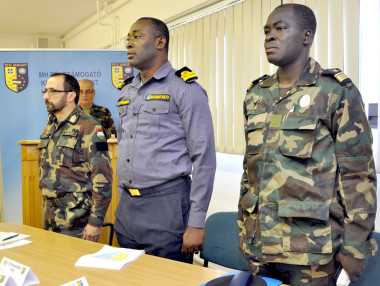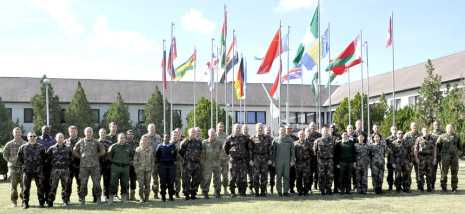Military Observers Learn Peacekeeping Skills
Szöveg: Sándor Galambos | 2016. október 3. 9:00On Monday, 26 September the International Military Observer Course (IMOC) was launched in the HDF Peace Support Training Center – Szolnok. In opening the course, Brig.-Gen. Zoltán Mihócza, Acting Chief of Staff of the HDF Joint Force Command wished the course participants every success with their work.
Galéria
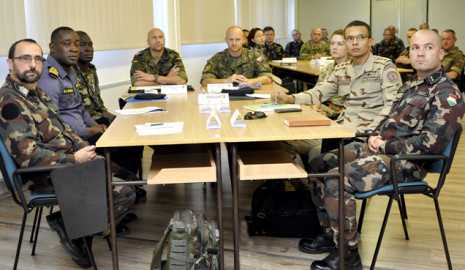
The 32nd International Military Observer Course (IMOC) has started. The present course is being attended by nine Hungarian officers and another 20 officers from 15 countries (China, Belarus, Egypt, Georgia, Germany, India, Namibia, Nepal, Palestine, Slovakia, Slovenia, Togo, Ukraine, the United Kingdom and Nigeria), who are preparing for unarmed military observer tasks. They are attending lessons given by instructors from Austria, Bosnia-Herzegovina and Finland with yearslong experience gained as military observes in foreign missions, as well as by Hungarian lecturers – including volunteer operational reservists – and invited speakers.
In his opening remarks, Brig.-Gen. Zoltán Mihócza emphasized that “in today’s rapidly changing environment, when we have to face new challenges in the field of peace and security, there is an increasing need for well-prepared and professionally trained peacekeepers whose work plays a key role in making the world a safer and more stable place. Their work is increasingly difficult, because they have to be ready not only to tackle “old challenges" such as civil wars and border disputes, but they also encounter problems of international terrorism and illegal human and drug trafficking. In other cases, they work is needed during natural disasters. “
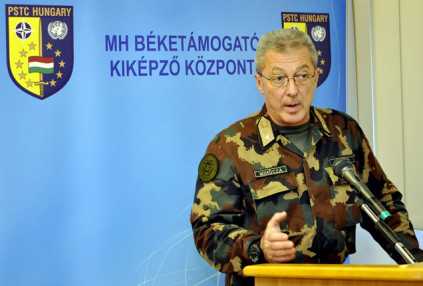
In the first days, the attendees of the course are participating mostly in classroom training sessions where they are introduced to the basics of peacekeeping and its UN principles, the possibilities of cooperation with international organizations and the rules of communications, negotiation techniques, patrolling and observations. In the second week, the focus will be on field training, the practical use of the skills they learned in the classroom. The various situational training events are to be conducted in the Szolnok barracks and the vicinity of Egerbakta. At the end of the third week of training, the students go on a two-day culmination exercise to prove their readiness. They are going to execute UN observers’ tasks in a fictitious area of operation, including patrols, arms control, searches and “negotiation" with representatives of the opposing sides.
Running in the HDF Peace Support Training Centre, the International Military Observer Course is a training program recognized by the UN Department of Peacekeeping Operations (UN DPKO), whose accreditation was renewed by the world organization for another four years in April 2015. The popularity of the course is shown by the fact that so far more than 700 participants have completed it, including approx. 400 officers from 75 different countries.
The opening ceremony of the 32nd International Military Observer Course was attended, among others, by Brig.-Gen. Zoltán Gulyás, Deputy Commander, Public Affairs Coordinator, HDF Augmentation, Preparation and Training Command, Col. Dr. József Koller, Deputy Commander, HDF 86th Szolnok Helicopter Base, and Lt.-Col. Márton Szász, Deputy Chief, Operations (J3) Directorate, HDF Joint Force Command.
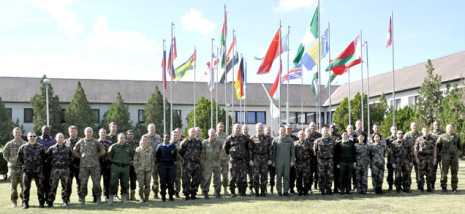
Hungarian troops have been participating in international peacekeeping operations since 1988. The first such mission was UNIIMOG, with a mandate of supervising the ceasefire between Iraq and Iran after the war. Hungary has sent military observes to peacekeeping operations conducted at several spots around the world, including Angola, Mozambique, Liberia, Tajikistan, Uganda, Georgia, Kuwait and the Western Sahara.
The next qualitative change occurred in 1995, when the first Hungarian armed contingent joined the UN Peacekeeping Force in Cyprus (UNFICYP) and the Multinational Force and Observers (MFO) mission in the Sinai (Egypt).
Currently Hungarian military observers are stationed in Georgia, the Western Sahara, Cyprus and Lebanon. Our armed contingents are present in the Balkans, Afghanistan and Cyprus under EU, NATO and UN command. At present, close to 1000 Hungarian soldiers are serving with peacekeeping missions.
Photos by the author
